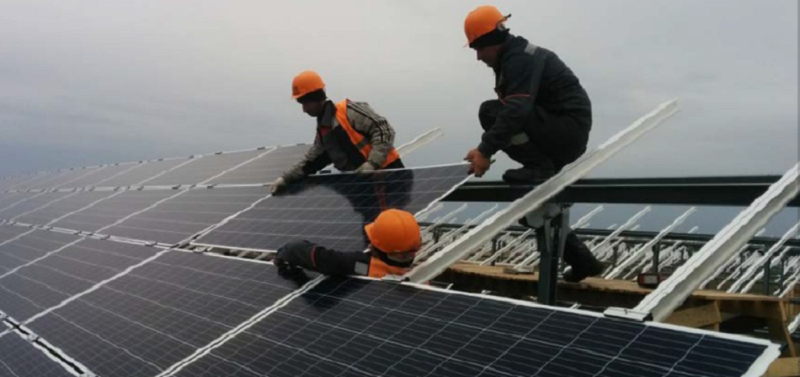
The European Bank for Reconstruction and Development (EBRD) and Green Climate Fund (GCF) have committed to $70m loan for the construction of a 100MW solar plant in the Karaganda region of Kazakhstan.
This will be the largest power plant built at one time in Central Asia.
Under the financing package, EBRD will provide a loan of nearly $51.3m, while the Green Climate Fund (GCF) has committed to provide a loan of up to $22.2m.
The solar park project will be implemented by a special-purpose company incorporated in Kazakhstan called SES Saran, which will be ultimately owned by the German group Joachim Goldbeck Holding.
SES Saran solar plant is part of the EBRD-GCF Kazakhstan Renewables Framework, which has been designed to increase investments in renewables, provide technical assistance and build institutional capacity for energy integration.
Upon completion, the solar power plant is expected to reduce carbon emissions by 93,500t per year, as well as support Kazakhstan’s national emission reduction targets and EBRD’s Green Economy Transition strategy.

US Tariffs are shifting - will you react or anticipate?
Don’t let policy changes catch you off guard. Stay proactive with real-time data and expert analysis.
By GlobalDataThe solar project further strengthens cooperation between EBRD and the Ministry of Energy of the Republic of Kazakhstan in developing renewable energy.
In addition to increasing the country’s potential in renewables, the project will strengthen the private sector’s involvement in the power and energy sector, which has been dominated by state entities.
So far, EBRD has invested more than €7.5bn in the economy of Kazakhstan through 246 projects.
Since 2006, EBRD has committed €26.7bn for the Green Economy Transition strategy, with €6.3bn invested only in renewable energy.



